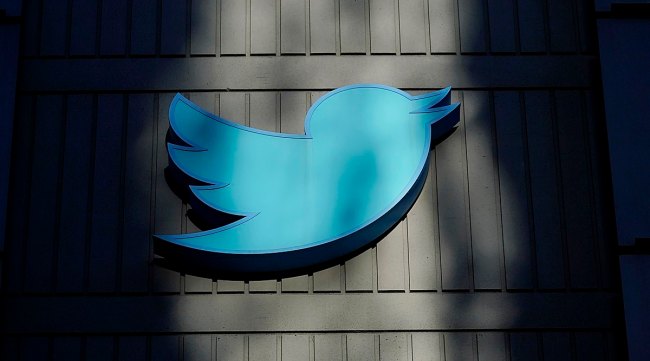Opinion Twitter vs government: Karnataka High Court has shrunk free expression
The fact that the court has rebuked Twitter and imposed costs for its efforts to push-back against the blocking orders sets a dangerous precedent that undermines international human rights obligations and shrinks digital civic spaces
 Twitter challenged 39 out of over 1,640 government blocking orders issued to it under Section 69A of the Information Technology Act during 2021-2022. (AP)
Twitter challenged 39 out of over 1,640 government blocking orders issued to it under Section 69A of the Information Technology Act during 2021-2022. (AP) The Karnataka High Court recently dismissed Twitter’s challenge to the government’s content blocking orders. There are many reasons why this is concerning, not just for the approximately 24 million Twitter users in India, but for anyone who uses the internet to express themselves or share information. First, it undermines the fundamental right to free expression. Second, it may be brandished as a victory in ensuring platform accountability – but this would not be accurate. Third, the judgment aggravates concerns around the increasing opacity of government control over online content, and declining freedom and openness on the internet. On this occasion, the judiciary falls short in its duty of checking executive overreach.
Twitter challenged 39 out of over 1,640 government blocking orders issued to it under Section 69A of the Information Technology Act during 2021-2022. Section 69A, and the Blocking Rules, permit blocking online content subject to certain conditions. The government must follow a procedure which includes giving notice and an opportunity to be heard. In 2015, when the Supreme Court upheld the validity of Section 69A in the landmark Shreya Singhal judgment, it relied on the existence of these procedural safeguards. The Supreme Court specifically noted that affected users (Twitter account holders in this case) should be able to legally challenge blocking orders.
One of the most problematic aspects of the recent judgment is that it waters down most of these crucial safeguards for free speech.
The court ruled that the government does not need to inform users about their accounts or posts being blocked – it would suffice to simply notify the platform. But this is no remedy for the user as the court also ruled that foreign intermediaries like Twitter cannot raise any claim on behalf of its users. Further, it observed that the government is not required to provide any reasons for the blocking to users unless they ask. This is skewed because it places the burden on individuals to seek out orders that directly limit their constitutionally-guaranteed rights, which the state has a duty to safeguard.
The concern, accepted by the court, is that if users are informed, they will change their identity or post from other accounts. But why will users not do this anyway after their account is blocked without notice? How can opaque censorship stemming from such speculative reasoning qualify as a reasonable restriction on the fundamental right to free expression? The court even acknowledges that the government agreed to unblock several accounts after hearing Twitter, but denies users a fair opportunity to be heard.
The court has also expanded the scope of what the government can block – not just specific posts but entire accounts. This acts as a prior restraint, censoring any future speech by the affected person. Blocking entire accounts, and prior restraint, against which the Supreme Court has historically urged severe caution, are disproportionate actions warranting intense scrutiny under the Indian Constitution. But the Twitter judgment does not engage in any meaningful analysis of whether blocking is necessary, proportionate, or the least restrictive measure – all of which are necessary thresholds for restrictions on fundamental rights. Despite conceding that harmless content will also be blocked, the court holds that it is impractical to isolate specific posts, and that account-blocking is a deterrent.
The fact that the government (and platforms) can identify and block specific posts is clear in practice. This includes posts with unlawful content, even if they partially carry innocuous content. Laws serve as deterrents when they are clear and categorical – when people know what is permissible and what is not. But when blocking orders, and the underlying reasons, are kept from the public domain, there is no predictability. Grounds like “public order” or “sovereignty of India” are ambiguous and often used in an overbroad manner. This opacity allows the government to block content even if it does not fall in any of the permissible grounds, since it will rarely have to explain why. Further, account-blocking has a broad chilling effect – if people cannot predict why their accounts may be blocked and they have no efficient remedy, they will err on the side of caution and self-censor, achieving a criticism-free public narrative that is debilitating for democracy.
The judgment is not a win for platform accountability either. Such accountability cannot be achieved without absolute transparency around the blocking procedure. Twitter has blocked hundreds of accounts belonging to journalists, writers, and politicians in India in response to government orders. There are other orders that Twitter has chosen not to challenge. There are other platforms that have not challenged any blocking orders. While platforms have a duty to protect its users’ rights, people cannot merely rely on platforms acting in good faith. There are plenty of examples of content moderation practices of social media platforms harming people’s rights.
Further, in the absence of mechanisms that make authorities answerable, social media platforms will be coerced into overzealous blocking, especially in respect of criticism of the government, to avoid legal proceedings and liability. Platforms may even change their guidelines to block content and accounts without the need to provide users with detailed reasons. The fact that the court has rebuked Twitter and imposed costs for its efforts to push-back against the blocking orders, even though it is arguably Twitter’s responsibility to do so under the UN’s Guiding Principles on Business and Human Rights, sets a dangerous precedent that undermines international human rights obligations and shrinks digital civic spaces. The court’s repeated admonition of Twitter as a foreign company taking up judicial time at the expense of ordinary litigants also undermines global business interests in India. Platforms, and everyone using their services, must reckon with the consequences of a framework that makes them susceptible to disproportionate state control.
The judgment marks a missed opportunity to build on the Shreya Singhal judgment to ensure government and platform accountability with respect to online speech, and counter efforts to stifle free expression.
Maheshwari is Policy Counsel at Access Now; Narayan is Policy and Advocacy Fellow at Access Now




